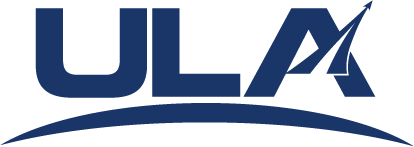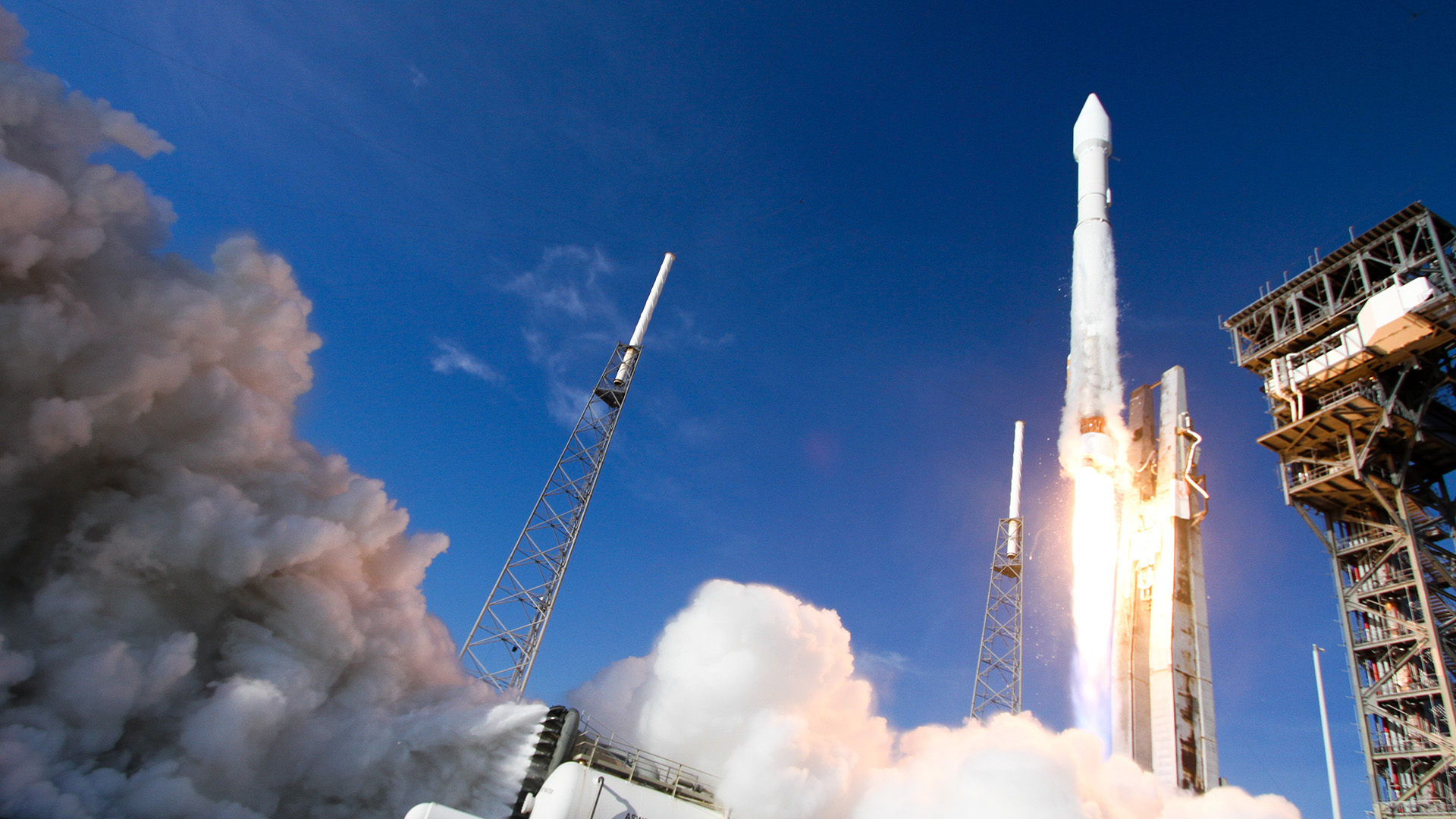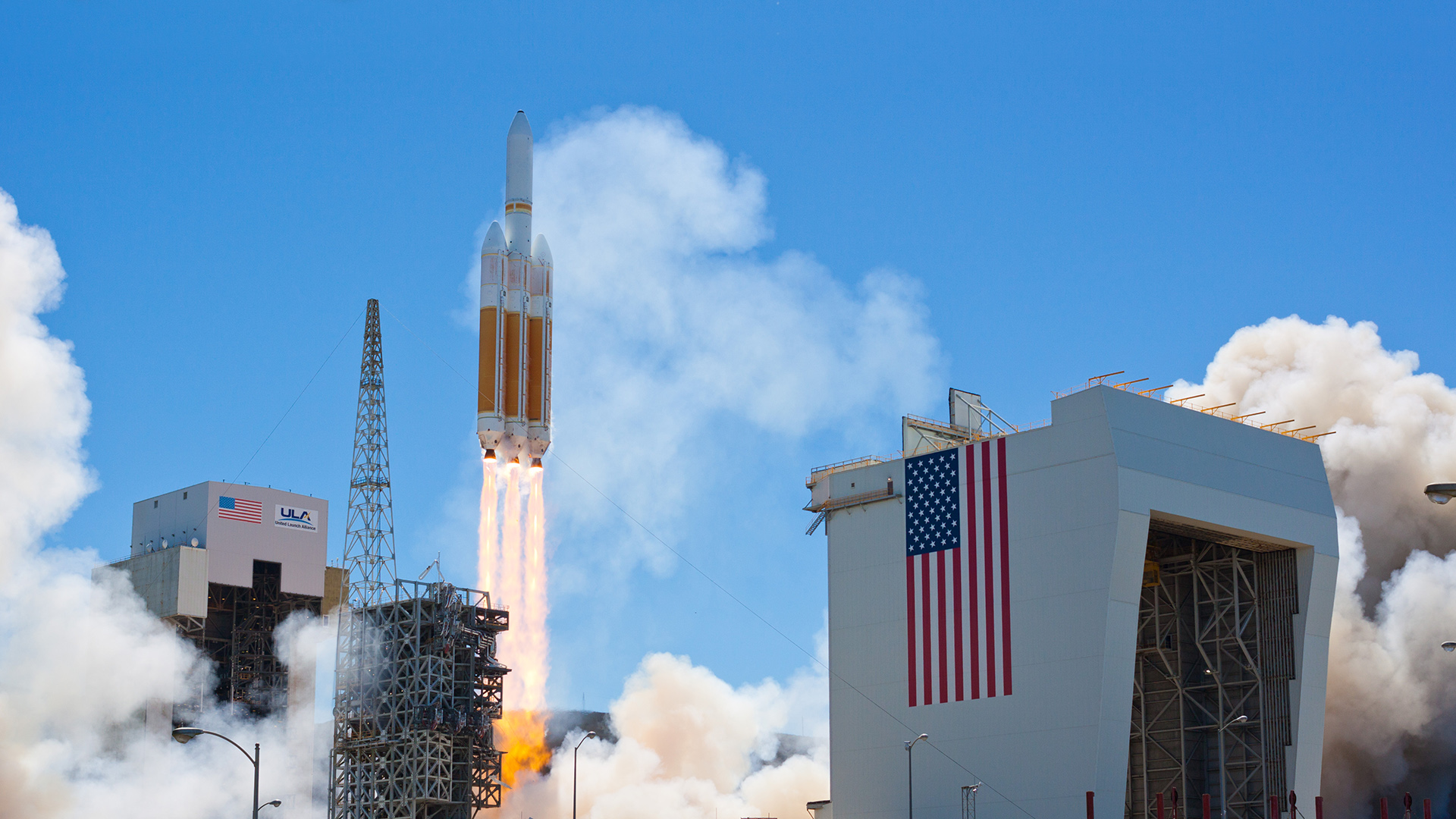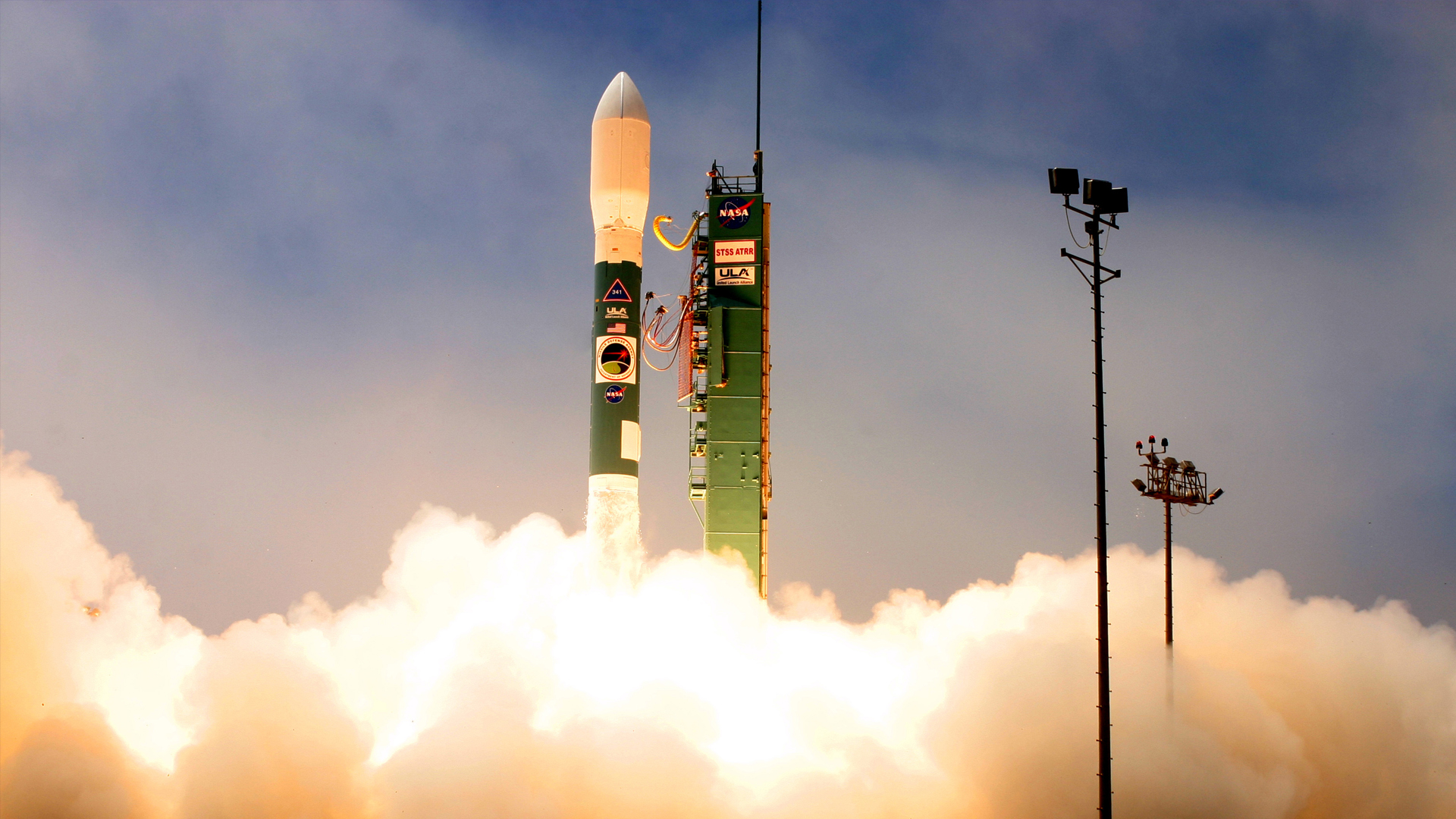Missions
Next LaunchUnited Launch Alliance Successfully Launches Third X-37B
Atlas V OTV-3 Mission Booklet
First Spacecraft to Launch on an Atlas, Return to Earth and Launch Again
Cape Canaveral Air Force Station, Fla., (Dec. 11, 2012) – A United Launch Alliance (ULA) Atlas V rocket successfully launched the third Orbital Test Vehicle (OTV-3) for the Air Force’s Rapid Capabilities Office (AFRCO) at 1:03 p.m. EST today from Space Launch Complex-41. The OTV, also known as the X-37B, supports space experimentation, risk reduction, and concept of operations development for long duration and reusable space vehicle technologies. The first two OTV missions also were successfully launched by ULA respectively on April 22, 2010 and March 5, 2011.
"The ULA team is proud to have played a critical role in successfully launching these three important Orbital Test Vehicle missions for the Air Force RCO,” said Jim Sponnick, ULA vice president, Mission Operations. “This is a unique spacecraft since it is the first to launch on an Atlas V, return to Earth landing at Vandenberg Air Force Base in California, and then fly again on this mission.”
This launch completes the most aggressive campaign in the history of the Evolved Expendable Launch Vehicle (EELV) program with 10 missions launched during 2012, including eight launches from Cape Canaveral Air Force Station in Florida and two from Vandenberg Air Force Station in California.
This mission was launched aboard an Atlas V EELV 501 configuration vehicle, which includes a 5-meter diameter payload fairing. The Atlas booster for this mission was powered by the RD AMROSS RD-180 engine and the Centaur upper stage was powered by a single Pratt & Whitney Rocketdyne (PWR) RL10A-4 engine
“I sincerely congratulate our OTV customer on today’s successful launch as well as our integrated team of mission partners that successfully accomplished ten critical one-at-a-time launches in 2012,” said Sponnick.
The EELV program was established by the United States Air Force to provide assured access to space for Department of Defense and other government payloads. The commercially developed EELV Program supports the full range of government mission requirements, while delivering on schedule and providing significant cost savings over the heritage launch systems.
ULA's next launch is the Atlas V TDRS-K mission for NASA scheduled Jan. 29, 2013 from Space Launch Complex-41 at Cape Canaveral Air Force Station, Fla.
ULA program management, engineering, test, and mission support functions are headquartered in Denver, Colo. Manufacturing, assembly and integration operations are located at Decatur, Ala., and Harlingen, Texas. Launch operations are located at Cape Canaveral AFS, Fla., and Vandenberg AFB, Calif.
For more information on ULA, visit the ULA Web site at www.ulalaunch.com, or call the ULA Launch Hotline at 1-877-ULA-4321 (852-4321). Join the conversation at www.facebook.com/ulalaunch and twitter.com/ulalaunch.





